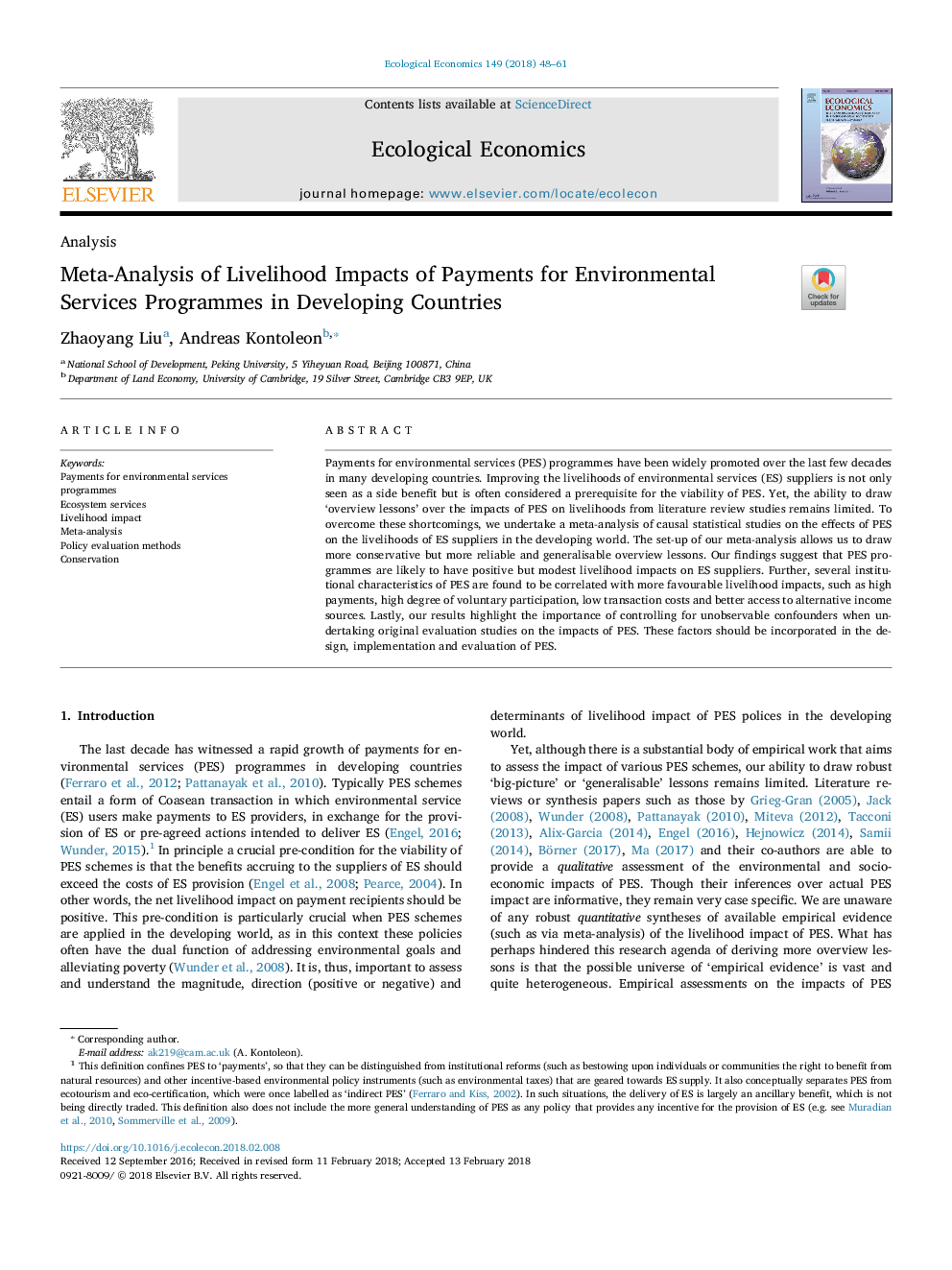ترجمه فارسی عنوان مقاله
متا تجزیه و تحلیل اثرات معیشتی پرداخت ها برای برنامه های خدمات محیطی در کشورهای در حال توسعه
عنوان انگلیسی
Meta-Analysis of Livelihood Impacts of Payments for Environmental Services Programmes in Developing Countries
| کد مقاله | سال انتشار | تعداد صفحات مقاله انگلیسی |
|---|---|---|
| 86140 | 2018 | 14 صفحه PDF |
منبع

Publisher : Elsevier - Science Direct (الزویر - ساینس دایرکت)
Journal : Ecological Economics, Volume 149, July 2018, Pages 48-61
ترجمه کلمات کلیدی
پرداخت های برنامه های خدمات محیطی، خدمات محیط زیستی، تأثیر معیشت، متاآنالیز، روش های ارزیابی سیاست، حفاظت،
کلمات کلیدی انگلیسی
Payments for environmental services programmes; Ecosystem services; Livelihood impact; Meta-analysis; Policy evaluation methods; Conservation;

